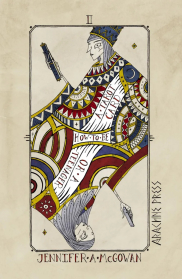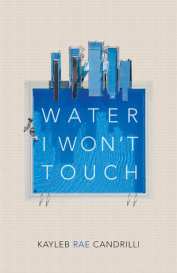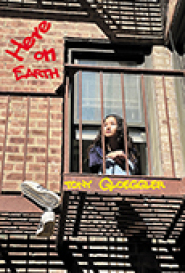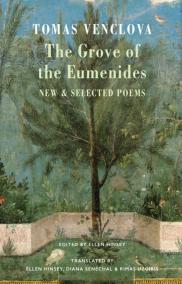
Jennifer A. McGowan,
How to be a Tarot Card (Or a Teenager),
Arachne Press, 2022. ISBN: 978-1-913665-64-7. 94pp. £10.00.
The first thing to consider here is the most obvious, and that is the title. It certainly would not garner any praise for being snappy. Whether an unwieldly title is a barrier to a book being read and celebrated is a matter for conjecture. If Eliot had stuck with his original title for The Wasteland, ‘He Do the Police In Different Voices’, would his seminal modernist poem have been overlooked? Eliot’s masterpiece might have achieved its status regardless of a cumbersome title.
In McGowan’s case her title deploys another potential barrier which is the Tarot itself. However, let me reassure any potential readers that a working knowledge of the Tarot pack is not a requirement to enjoying the poems. While it is the case, as McGowan states in her foreword, that “these poems are presented in the order of the Tarot major arcana which inspired them, starting with the Fool”, the cards primarily provided a stimulus for the composition of each poem and do not impinge to any great extent on the content. In terms of the thematic organisation of the collection, the Tarot provides an overarching concept rather than a foundation.
Some endnotes are provided but these predominantly are not concerned with the Tarot pack itself. Certain literary and historical references are elucidated and she identifies some of the fixed forms employed. One footnote linked to the poem ‘Hagged’ discloses an alarming report on the poet’s health: “At the time of writing, the poet has had Long Covid for 23 months on top of a disability and perpetually rotating broken bones.” That she was able to write at all given her condition is a testament to a fierce commitment to her art and exceptional grit.
While the poems are not arcane, they are often oblique. However, her assurance and dexterity prove irresistible and one is carried along with while not always fully understanding quite what is going on. An example of this is the title poem itself which consists of six numbered stanzas, the sixth repeating the first word for word, simply proclaiming: “Mean several different things/ at once.” All the stanzas are gnomic and adopt the imperative. They intrigue and pack a punch that outweighs their brevity. Stanza 5 declares:
Always remain upright if you can.
Don’t be surprised
if someone misreads you.
It seems fitting that this reads like an extract from a Tarot reading.
Elsewhere there are occasional flashes of dry humour, which draw the reader in and leaven the intensity. A poem entitled ‘Says the Magus’ ends with this stanza:
She stares straight at him, unapologetic.
I’ve been bleeding since I was ten,
says she. Puh-lease.
This has the adroitness of stand-up. From the evidence of poems like this, I have the impression she is very probably an able performer of her work. That is a matter of conjecture but what is undeniable is that McGowan demonstrates a facility with form. This is evidenced by work that is carefully crafted and also by several poems in fixed form. There is a skilfully wrought triolet, ‘Judgement’, which avoids being stilted despite the severe restrictions of the form. Her adroitness is further demonstrated in a sonnet, ‘The Girl in the Raven Mask’. In the footnote to this poem we learn that it is a Petrarchan sonnet. Unlike the Shakespearean sonnet, the rhyme scheme allows for a register that is closer to everyday speech because the rhymes are less intrusive.
While there is variety in the collection, the poems share a tone which while not resolutely homogenous does mean that they sit comfortably together. However, there is one notable exception. Judged on its own, ‘How to be a Flawed Person’ is a poem that impresses with its clarity and satirical intent, where the flawed person under consideration is praised for unconscionable actions and attitudes. It also echoes the book’s title, and in that respect has a possible structural function but for that to be the case perhaps there should have been more ‘How to Be’ poems. The problem with ‘How to be a Flawed Person’ from the perspective of the collection is that it does not fit the prevailing register, even though it is a good poem and would definitely be a crowd pleaser at a poetry reading. It would have been a wise editorial decision to have left it out.
How to be a Tarot Card (Or a Teenager) reveals McGowan as a poet with a sure, adept touch who possesses a keen intelligence. While her lyrical impulse is commendably restrained, she can soar at times too, as in the closing lines of Fool on the Mountain:
you look, look back
to where you were, and laugh; rise up
on your toes; step out into the loving air,
vanish into the rest of you.
The resonance here is a fitting summary of the quality of the whole collection.
David Mark Williams
To order this book click here
David Mark Williams writes poetry and short fiction. He has two collections of poetry published: The Odd Sock Exchange (Cinnamon, 2015) and Papaya Fantasia (Hedgehog, 2018). For more information go to www.davidmarkwilliams.co.uk
Kayleb Rae Candrilli, Water I Won’t Touch, Copper Canyon Press, 2021.
ISBN: 978-1-55659-617-9. 96pp. $16.00.
In the poem, “Water we won’t touch,” Kayleb Rae Candrilli writes:
What is a family if not preparation?
We can smell a storm coming
before anyone. I swear
we can taste it rolling in.
Much of this collection tells the story of a dysfunctional family, one in which violence is the basic form of communication, especially for the father, but there’s also love and forgiveness intertwined. The poet, a trans person, is especially devoted to their partner. In the brilliant multi-part poem that closes the collection, “Transgender heroic: all this ridiculous flesh,” Candrilli writes:
My partner tells me about their day,
every day. And every day I watch
their skin drink the sun’s light
with an unabashed thirst for our
life together.
Childhood in rural Pennsylvania was hell, living with a violent father. Candrilli writes in “On the abuse of sleep aids”:
back when my mother shared
a bed with my father, she took
three benadryl every night. she said
i thought he was going to kill me.
and for years we stayed drowsy
together, lulled by that incessant
rhythm of violence.
Guns, that quintessence of
violence, appear over and over again. In “On the benefits of learning by example,” in which Candrilli remembers the father killing bats at night with a BB gun (“He held them together, / dead in
his hands and rolling like tiny red plums.”), they write: “The first thing I ever learned is that it’s not hard / to kill.”
The father was particularly abusive to Candrilli’s sibling. “I challenge my father to an arm-wrestling competition and finally win” begins:
More than a decade has passed since I saw my father,
in the parking lot of a Wilkes-Barre strip mall. More than
a decade since he took my sibling to the Hawaiian Islands
and dosed them with oxy, meth, and heroin. In that order.
None of this should have surprised me. But, of course, it did.
“Violent men want me to be a violent man. / Or they want me dead. // What a privilege to have an option,” Candrilli concludes the opening poem, “Sand & silt.” The irony of that final line is so delicious, but importantly, Candrilli is never bitter. Candrilli writes, “I have so few fond memories of my father, / but what I have, I hold.”
However horrific childhood may have been, Candrilli does not wallow in self-pity. In “My partner wants me to write them a poem about Drew Barrymore,” they observe, “It’s true that not everyone can be saved
but that doesn’t mean you should keep your hands in your pockets,
thumbing lint and that single bicentennial quarter you’ve smoothed
with wishing. When my partner saw the Grand Canyon for the first
time, they wept. The whole sky was the same color, a massive,
unimaginable thing. Bless the sun that keeps us alive and full
of our wonder and warm blood.
Indeed, life is so important to the poet. They write in “Here we are, aging together, just like we said we would”:
This is what we’ve promised
one another, to try and live
and live and live
until the earth caves in.
The earth is indeed fragile. Candrilli’s deep concern for climate change and the poor stewardship humans have shown the planet appear throughout the book. “I spend so much time / worrying about the earth and its hurricane / complexion, all its cyclonic acne….”
A handful of the poems center around Candrilli’s double mastectomy. “In crescents & waning” begins just as the anesthesia kicks in prior to surgery, admiring “for the last time, the fullness of this original body.” The poem ends, post-surgery:
I watch my own heart as it beats.
I look at my life more
closely than ever, and how beautiful
it is, just under the skin,
alive & alive & alive –
like a warm
moon.
“We remain foolishly hopeful (or, obituary for the topsoil)”
and “On having forgotten to recycle” are shaped like the profile of a breast, and they intermix the narrative of the mastectomy with Candrilli’s deep concerns about the environment. They write
in the first, “We are always hoping for the best. But humans
have sent all their worst inventions straight into
the soil. You can taste the plastic before
it’s even grown, before it’s even
melting in your mouth.
The second begins, “The Arctic is a wetland / and the Dead Sea
is dying, too.” And later in the poem, “My breasts, I imagine
are long dead, floating alongside jellyfish and plastic straws. I feel
surprised
by this new smallness – this body postanesthesia, post disposing all
the flesh I just didn’t want anymore. The world is growing
warmer. And it is true; I am smaller now, with a heart
that much closer to the sun.
Water I Won’t Touch is a brave and thoughtful autobiographical sequence in which Candrilli ponders the confusion implicit in growing up trans. “On the ways our mouths betray us”
ends;
Years ago my mother asked
if I was trans. I said no.
We were in the car, in a parking lot,
outside a Barnes & Noble, eating Panera,
and I said no when I meant
Yes, yes of
course.
Later, in “Transgender heroic,” they write, “I
carried
my transness in a secret jeans pocket
for decades. A few times, I even
sent it through the wash, hoping
to clean what was never dirty.
I am done lying.
Water is a subtle but powerful
image/symbol throughout this collection. Two poems, one about alcoholism, the other a more optimistic vision of life with their partner, are titled “Water I won’t touch”; hence, presumably, along
with “Water we won’t touch,” alluded to at the start of this review, the title of the collection. “Sometimes, / I feel I control the water, the tide / rising when I feel most in love,” Candrilli also
writes in “Transgender heroic…”
Water I Won’t Touch is heroic, for sure, a courageous coming-to-terms with one’s identity, challenges and aspirations. It’s also very lyrical, beautifully and honestly
written.
Charles
Rammelkamp
To order this book click here
Charles Rammelkamp is Prose Editor for BrickHouse Books in Baltimore, where he lives, and edits The Potomac, an online literary journal. http://thepotomacjournal.com. His photographs, poetry and fiction have appeared in many literary journals. His latest book is a collection of poems called Mata Hari: Eye of the Day (Apprentice House, Loyola University), and another poetry collection, American Zeitgeist, is forthcoming from Apprentice House.



